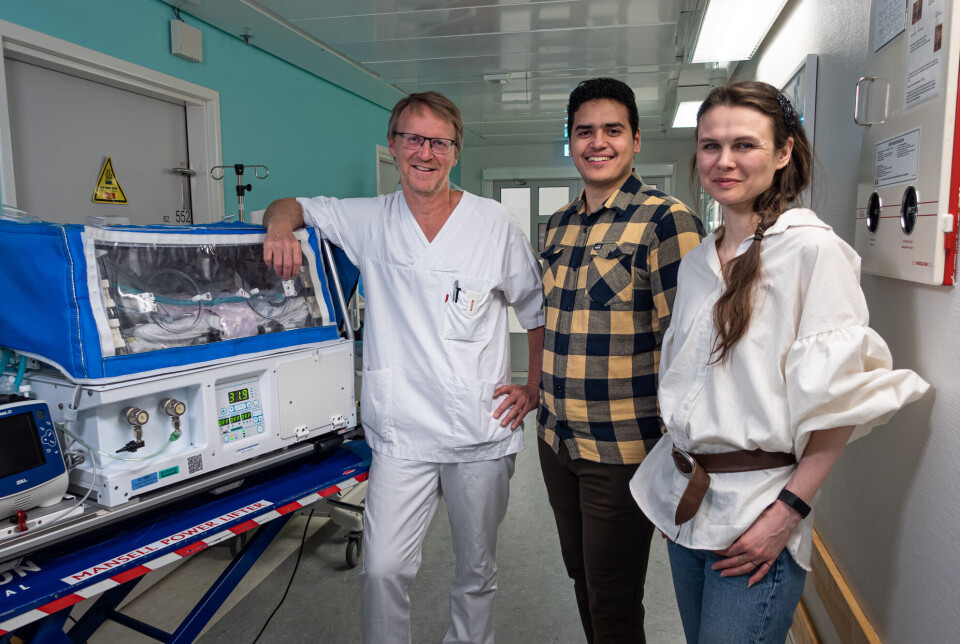THIS CONTENT IS BROUGHT TO YOU BY UiT The Arctic University of Norway - read more

Probiotics are beneficial for preterm babies
There are even more positives to probiotics than previously thought. As well as helping preterm babies gain a healthy gut microbiome, they reduce the chance of harmful bacteria building resistance to antibiotics.
Every year, about 15 million preterm babies are born worldwide who suffer from a risk of infection and inflammation.
Being born many weeks or even months before their expected due date, their immune system is less mature than in term babies, including impaired gut barrier function and quite different microbial community in the large intestine.
Giving antibiotics to preterm infants disrupts the maturing process of the gut microbiome, and makes them more vulnerable to antimicrobial resistant variants of harmful bacteria.
Researchers at UiT The Arctic University of Norway have found that probiotics help preterm babies achieve a better bacterial balance in the gut and eradicate harmful bacteria, as the under-developed gut microbiome works its way into maturity.
Helping preterm babies catch up with their fellow newborns
The researchers used data from a clinical trial where stool samples were collected four times in the first year of life from 72 babies in six Norwegian neonatal intensive care units.
They then divided the samples into groups depending on whether the newborns were given antibiotics, a combination of antibiotics and probiotics, or none.
The microbial DNA in the samples was sequenced to follow the development of the babies’ gut microbiota.
The study supports the findings of other recent studies showing that probiotics boost normal microbiota and maturation in preterm infants to levels comparable to full-term newborns.
Less antimicrobial resistance
But there is also another finding that should be very interesting to medical staff around the world fighting antimicrobial resistance.
With probiotics, the extremely preterm infants had decreased risk of carrying antimicrobial resistant bugs despite frequent treatment with antibiotics.
"We discovered that probiotic-supplemented preterm newborns have bacteria that carry substantially fewer antibiotic-resistance genes, than infants that did not get probiotic supplements," researcher Ahmed Bargheet, the first author of the study, says.
Reference:
Bargheet et al. Development of early life gut resistome and mobilome across gestational ages and microbiota-modifying treatments, eBioMedicine, vol. 92, 2023. DOI: 10.1016/j.ebiom.2023.104613

This article/press release is paid for and presented by UiT The Arctic University of Norway
This content is created by UiT's communication staff, who use this platform to communicate science and share results from research with the public. UiT The Arctic University of Norway is one of more than 80 owners of ScienceNorway.no. Read more here.
More content from UiT:
-
AI can help detect heart diseases more quickly
-
Why does Norway need its own AI law?
-
Researchers reveal a fascinating catch from the depths of the sea
-
How can we protect newborn babies from dangerous germs?
-
This is how AI can contribute to faster treatment of lung cancer
-
Newly identified bacterium named after the Northern Lights is resistant to antibiotics




































